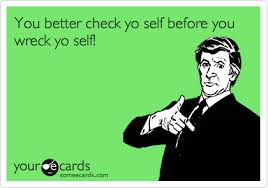
Art consulting is a complex and multifaceted field that requires a broad range of knowledge and expertise. An art consultant is responsible for guiding clients in their acquisition and management of artwork, providing expert advice on everything from art history and valuation to logistics and installation. In this blog post, we will delve deeper into the top five things that an art consultant needs to know to succeed in this field.
- Art History and Styles
One of the most fundamental aspects of art consulting is a deep knowledge of art history and styles. Art consultants must be able to identify and understand different artistic movements and styles, from Renaissance to Baroque to Contemporary Art. They should also be familiar with different styles, such as Realism, Abstract Expressionism, Pop Art, and Minimalism, among others. To be an effective art consultant, one must have a comprehensive understanding of the art world’s historical context. This understanding allows them to identify trends, understand the significance of individual pieces, and provide clients with informed advice on the art market. Art consultants must be able to recognize an artist’s style and its evolution throughout their career. They should know the cultural and historical context that influenced artists and their work, including the social and political factors that contributed to different artistic movements. This knowledge is crucial when advising clients on the acquisition of artwork. Understanding the historical context of an artwork allows consultants to assess its cultural significance and value accurately. Moreover, a deep knowledge of art history allows consultants to recognize emerging trends and identify up-and-coming artists who may not yet have achieved widespread recognition. - Current Art Market Trends
The art market is a constantly evolving and dynamic industry, with new artists and styles emerging all the time. As such, art consultants must stay up-to-date with the latest market trends and changes to remain competitive and provide their clients with informed advice. Consultants must have a deep understanding of the art market, including knowledge of emerging artists, new galleries, and auction houses. They should be able to identify market trends and understand the impact of global economic and political factors on the art world. Art consultants must also be familiar with pricing and selling strategies for different types of artwork. Moreover, consultants must know how to navigate the art market to help clients acquire artwork successfully. This includes understanding the buying process, negotiating prices with galleries and auction houses, and dealing with issues such as authenticity and provenance. - Art Valuation and Appraisal
Art valuation and appraisal are crucial skills that all art consultants must possess. Consultants must be able to assess the value of different artworks, taking into account factors such as an artist’s reputation, rarity, condition, and provenance. Art valuation and appraisal are essential when negotiating prices with galleries or auction houses, advising clients on the potential investment value of their collection, or making decisions about the sale or purchase of artwork. Moreover, consultants must be familiar with different valuation methods, including comparative sales analysis, income approach, and cost approach. - Art Logistics and Installation
Art logistics and installation are critical skills for any art consultant. These skills allow consultants to ensure that artwork is handled, shipped, and installed correctly and safely. Consultants must know how to pack and transport artwork securely, navigate the complexities of customs and shipping regulations, and ensure that artwork is installed correctly and safely in a client’s home or office.
Moreover, consultants must be familiar with different types of artwork and the specific requirements for their installation. They must be able to work with installers, architects, and other professionals to ensure that artwork is displayed in the best possible way. - Client Relationship Management
Finally, art consultants must be skilled in client relationship management. Consultants must be able to build strong relationships with clients based on trust, communication, and mutual understanding. This requires active listening, empathy, and the ability to understand a client’s unique needs and preferences. Art consultants should understand the importance of confidentiality and maintain discretion in all their dealings with clients. They respect their clients’ privacy and ensure that their personal information and collections remain confidential.
